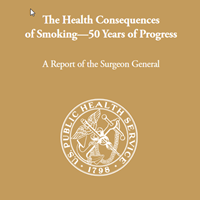E-cigarettes: what does the science say?
By now we have all heard about e-cigarettes, or vapes. You may have heard that they could help people quit smoking. You may have heard that they are just as bad as cigarettes. But what does the data actually say about the risks and the benefits?
Can e-cigarettes help people quit tobacco?
E-cigarettes are not approved by the FDA as a tool to quit smoking. There is not strong evidence to suggest that they can help people who smoke to entirely quit tobacco products. Many people who smoke and begin using e-cigarettes either continue to use both products or continue vaping long-term. However, if adults (who are not pregnant) are able to completely switch from cigarettes to e-cigarettes, it may reduce harm compared to smoking. Learn more from the US CDC.
Vapes do contain many dangerous chemicals and are harmful, especially to youth, young adults and pregnant people. When compared to cigarettes, from what we currently know, e-cigarettes are likely less harmful–but that does not mean they are safe.
Are e-cigarettes safe?
There are many negative health impacts of e-cigarettes, including:
- EVALI, or E-cigarette/Vaping-associated lung injury
- Heart and blood vessel damage
- Lung damage including COPD (chronic, obstructive pulmonary disease)
- Asthma
- Nicotine addiction
- Impacts on the teeth, gums, and bacteria of the mouth
- Weakened immune system
Early evidence has shown e-cigarette aerosol to increase risk of cancers including lung and bladder cancer. Learn more about health impacts of e-cigarettes from the American Lung Association.
Do vapes emit secondhand smoke or vapor?
Yes, e-cigarettes emit harmful chemicals into the air around the person who is vaping. Ultrafine particles including heavy metals have been found in the air and on other surfaces after a person has used e-cigarettes indoors (known as thirdhand smoke). Research is already showing health harms associated with breathing in secondhand vape aerosol, including cardiovascular disease.
How bad are e-cigarettes for youth?
Importantly, nicotine is not safe for developing brains and bodies. Our brains are developing up through about age 25, and nicotine can have permanent impacts on the brain. It affects cognition, mood regulation, and addiction pathways, making it more likely that the person will use other substances later in life. E-cigarettes are also damaging to delicate lung tissue as lungs develop, and to other organs as young people are still growing into adulthood. Youth who vape are also more likely to later smoke.
E-cigarettes are not safe for a developing fetus or for pregnant people.
What is in an e-cigarette? Is it really water vapor?
There is no water in e-cigarettes. The liquid inside them (also called e-liquid) usually consists of substances called propylene glycol and vegetable glycerin–oily substances that allow the liquid to turn into an aerosol at a very high temperature. Almost all e-cigarettes contain nicotine at varying levels. They also typically contain flavor chemicals.
More research is needed to understand the health consequences of inhaling each of these substances, not to mention the effects of combining them and heating them to extremely high temperatures, which does chemically change the ingredients.
Because of the repeated heating to a very high temperature, fine particulate matter, including materials from the insides of vapes (plastics, heavy metals) are also found in e-cigarette aerosol.
What about “healthy” vapes or vapes without nicotine?
There are also vapes or e-cigarettes that are marketed and sold as health products, containing ingredients like vitamins, caffeine, melatonin, and essential oils. They may claim to be “personal diffusers,” “air inhalers,” or “health vapes.” They may even explicitly state that they are not e-cigarettes. These products are still e-cigarettes, and they are not regulated as tobacco products, meaning they don’t have the same oversight on their marketing, ingredients or labeling. They are also potentially dangerous, containing many of the same chemicals as nicotine-containing e-cigarettes, without scientifically demonstrated benefits.
The bottom line:
E-cigarettes are not harmless, and they are especially dangerous for youth, pregnant people and developing fetuses. They are not approved by the FDA as a smoking cessation tool because of a lack of evidence. They may still help some adult smokers to reduce harm, if they are able to quit smoking entirely.
The good news:
If you are interested in quitting smoking, there are decades of research to show that quit counseling in combination with medication can greatly help your chances of quitting for good. Call 1-800-QUIT-NOW or use our website today to get started. Quitting is hard. And you CAN do it!





